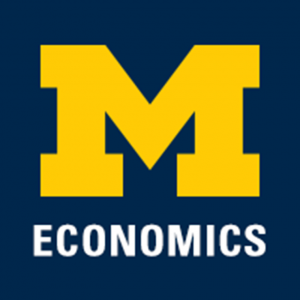Presented By: Social, Behavioral, and Experimental Economics (SBEE)
Social, Behavioral & Experimental Economics (SBEE): Misattribution of Reference Dependence: Theory and Experiments
Ben Bushong, Michigan State University

Abstract:
In this paper, we use a pair of experiments to show that workers form biased beliefs about a novel real-effort task because they fail to retrospectively account for sensations of positive and negative surprise. In our baseline experiment, participants learned from experience about one of two unfamiliar tasks, one more onerous than the other. Some participants were assigned their task by chance just prior to working, while others knew in advance which task they would face. In a second session conducted hours later, we elicited those participants' willingness to work at that same task. Relative to participants who knew with certainty which task they would face, participants assigned to the less-onerous task by chance were more willing to work, while participants assigned to the more-onerous task by chance were less willing to work. These qualitative results, and the fact that differences in willingness to work remained hours after initial impressions were formed, are consistent with the idea that participants mistakenly attributed sensations of positive or negative surprise to the effort cost of their assigned task.
In this paper, we use a pair of experiments to show that workers form biased beliefs about a novel real-effort task because they fail to retrospectively account for sensations of positive and negative surprise. In our baseline experiment, participants learned from experience about one of two unfamiliar tasks, one more onerous than the other. Some participants were assigned their task by chance just prior to working, while others knew in advance which task they would face. In a second session conducted hours later, we elicited those participants' willingness to work at that same task. Relative to participants who knew with certainty which task they would face, participants assigned to the less-onerous task by chance were more willing to work, while participants assigned to the more-onerous task by chance were less willing to work. These qualitative results, and the fact that differences in willingness to work remained hours after initial impressions were formed, are consistent with the idea that participants mistakenly attributed sensations of positive or negative surprise to the effort cost of their assigned task.